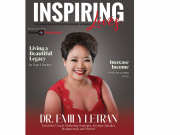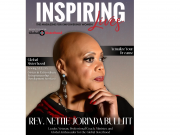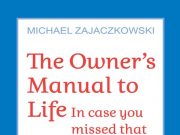I have always loved working with older adults, and when I learned about dementia care in my Psychology of Aging class in college, I was intrigued.
The brain is a fascinating organ, and it amazed me how much could change in the brain of someone who has dementia. As I learned more, I knew I wanted to work in dementia care full-time. I graduated with my master’s in gerontology from the University of North Carolina, Greensboro in 2013 and started a job with Brookdale Senior Living as a dementia care program manager. I learned quickly that so many families have loved ones who have dementia—but nowhere to turn for answers.
I was asked a lot of the same questions. My book addresses all these questions and more, even ones that families never thought to ask me until it was too late. I want people to understand dementia, be able to communicate with their loved ones who have it and be able to deal with their stress and guilt in an uplifting, kind way.
The ideal living dementia care community is full of life and engagement. It’s a place that allows residents to engage with others and their environment on their own terms: for example, residents have access to baby dolls, realistic-looking stuffed animals, workstations with tools that look and feel as real as possible, desks to “work” at, and other things they recognize. The care staff is engaging and knowledgeable about dementia care. Music is playing everywhere throughout the community, and residents have a wide array of activities to do throughout the day.
Caregivers need more information about dementia care, dementia communication, and dementia living situations. One of the things I see most often is when some families “guilt-trip” other families for moving their loved ones into a home. You’ll often hear people say, “Mom said never to move her into a home, so I just have to take care of her at my house.” This is really unfortunate. If your mother knew how bad her dementia would get, she never would have put that stress on you. Caregivers need to recognize that, sometimes, community care living is the best-case scenario for a loved one.
My book is relatable and easy to understand. I tell two stories per chapter, and all of my stories are true. I teach caregivers how to better communicate with people who have dementia, how to choose a living situation for a loved one with dementia, and if they choose a care community, I talk about the ifs, whens, whys, hows, and whats of community care.
When Someone You Know is Living in a Dementia Community: Words to Say and Things to Do is the only book on the market about care community living for this specific population—and that’s an important topic that shouldn’t be missed.





































